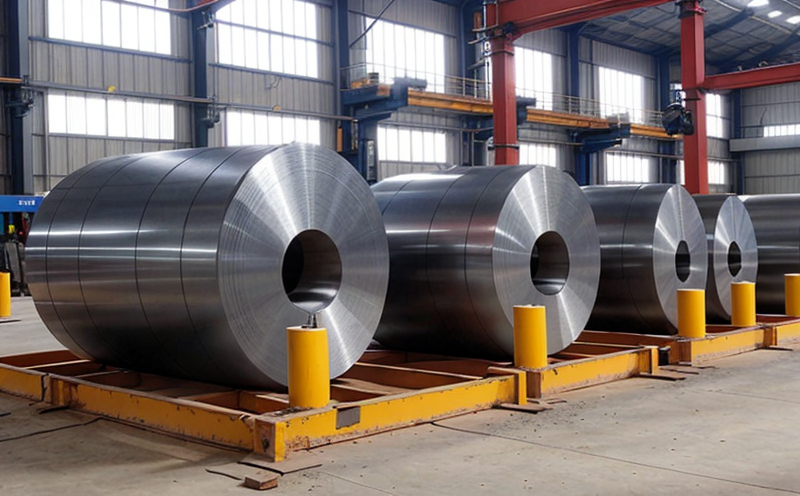Notch sensitivity testing for high-strength steels
The Critical Importance of Notch Sensitivity Testing for High-Strength Steels A Game-Changer for Businesses
In the world of materials science and engineering, high-strength steels have become an essential component in various industries, including aerospace, automotive, construction, and energy. These metals are prized for their exceptional strength-to-weight ratio, corrosion resistance, and durability. However, with great strength comes great responsibility particularly when it comes to notch sensitivity testing.
Notch sensitivity testing is a critical laboratory service that helps manufacturers and engineers determine the susceptibility of high-strength steels to cracking or failure under various loading conditions. In this article, we will delve into the world of notch sensitivity testing for high-strength steels, exploring its importance, benefits, and applications. As a trusted partner in materials characterization, Eurolab offers comprehensive Notch sensitivity testing services that can help businesses optimize their products and processes.
What is Notch Sensitivity Testing?
Notch sensitivity testing involves subjecting a metal sample to a controlled loading condition, typically using a universal testing machine or a drop tower. The test evaluates the samples response to stress concentrations created by notches, which can simulate real-world service conditions such as fatigue loading, impact, or corrosive environments.
The primary objective of notch sensitivity testing is to assess the materials resistance to cracking and failure under various loading scenarios. This information is crucial for ensuring product reliability, safety, and performance in demanding applications. Notch sensitivity testing is particularly relevant for high-strength steels, which are more prone to cracking due to their higher strength levels.
Advantages of Using Notch Sensitivity Testing for High-Strength Steels
The advantages of notch sensitivity testing for high-strength steels are numerous and significant
Improved Product Reliability By identifying potential weaknesses in the materials microstructure, notch sensitivity testing enables manufacturers to optimize their products and minimize the risk of failure.
Enhanced Safety Notch sensitivity testing helps ensure that high-strength steel components meet or exceed safety standards, reducing the likelihood of accidents and injuries.
Increased Efficiency By identifying areas for improvement, notch sensitivity testing can help businesses streamline production processes, reduce waste, and lower costs.
Compliance with Industry Standards Notch sensitivity testing is a requirement in many industries, including aerospace and automotive. Compliance with these standards ensures that products meet regulatory requirements and maintain customer confidence.
Key benefits of Notch Sensitivity Testing for High-Strength Steels
Accurate Material Characterization Eurolabs expert technicians use state-of-the-art equipment to provide accurate and reliable results, helping businesses make informed decisions about their materials.
Customized Testing Solutions Our laboratory offers tailored testing programs that cater to specific industry requirements, ensuring compliance with relevant standards and regulations.
Expert Interpretation of Results Our experienced team interprets test results, providing actionable insights that help manufacturers optimize their products and processes.
QA Notch Sensitivity Testing for High-Strength Steels
Q What types of materials are suitable for notch sensitivity testing?
A High-strength steels with a yield strength above 1000 MPa (145,000 psi) typically require notch sensitivity testing. However, other alloys and materials may also benefit from this service.
Q How do I prepare my material samples for notch sensitivity testing?
A Samples should be carefully cleaned, degreased, and prepared according to the specific test standard or industry requirement. Our laboratory technicians can provide guidance on sample preparation.
Q What types of loading conditions are typically used in notch sensitivity testing?
A Loading conditions may include tensile loading, fatigue cycling, impact testing, or a combination thereof. The choice of loading condition depends on the intended application and material properties.
Conclusion
Notch sensitivity testing for high-strength steels is an essential service that helps businesses optimize their products and processes. By identifying potential weaknesses in the materials microstructure, manufacturers can improve product reliability, enhance safety, increase efficiency, and ensure compliance with industry standards.
At Eurolab, we are committed to providing accurate and reliable results, expert interpretation of test data, and customized testing solutions tailored to specific industry requirements. Contact us today to learn more about our Notch sensitivity testing services and discover how we can help your business thrive in the global market.
References
ASTM E399 Standard Test Method for Linear-Elastic Plane-Strain Fracture Toughness of Metallic Materials
EN 10002-1 Metallic materials Tensile testing Part 1 Method of test at ambient temperature
ISO 12135 Metallic materials Uniaxial fatigue testing under axial force
Note The references provided are just a few examples of relevant industry standards and guidelines. For a comprehensive understanding of notch sensitivity testing, it is recommended to consult these documents in conjunction with the information presented in this article.




